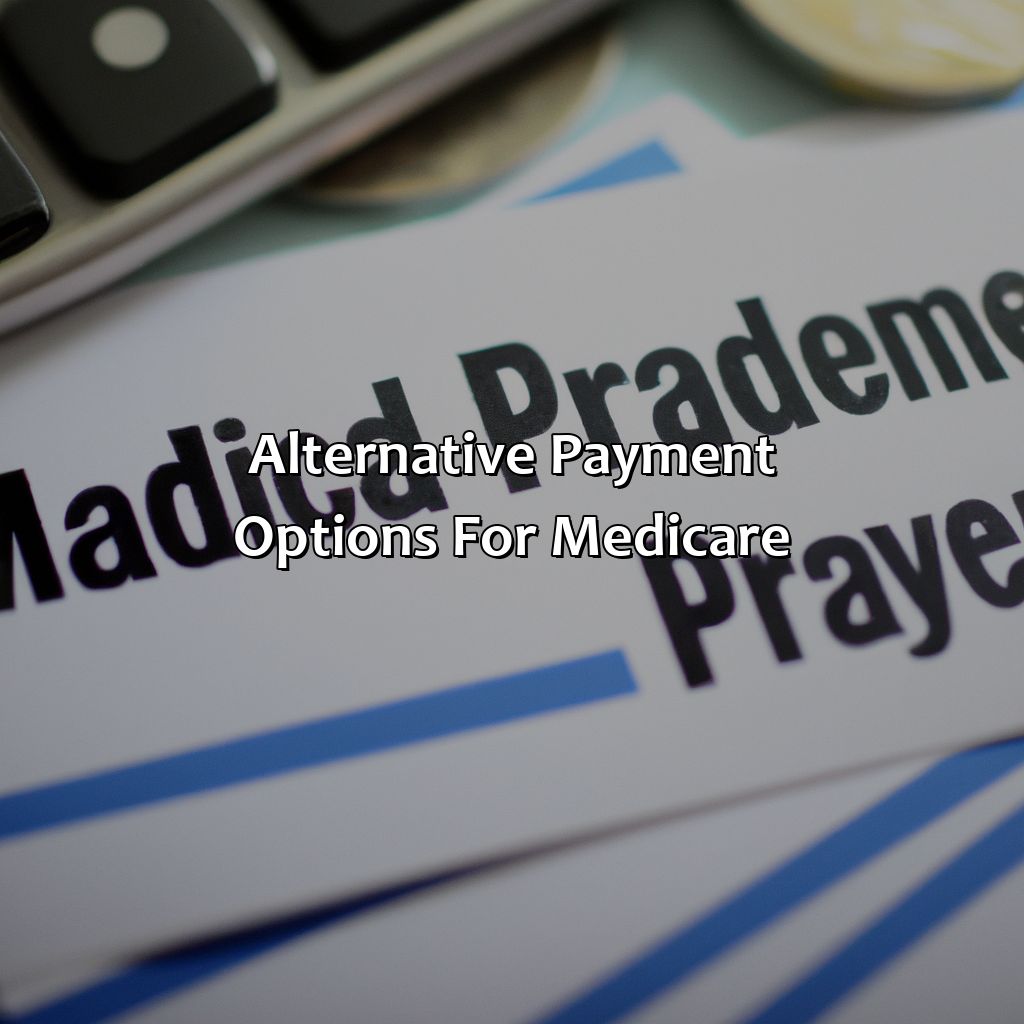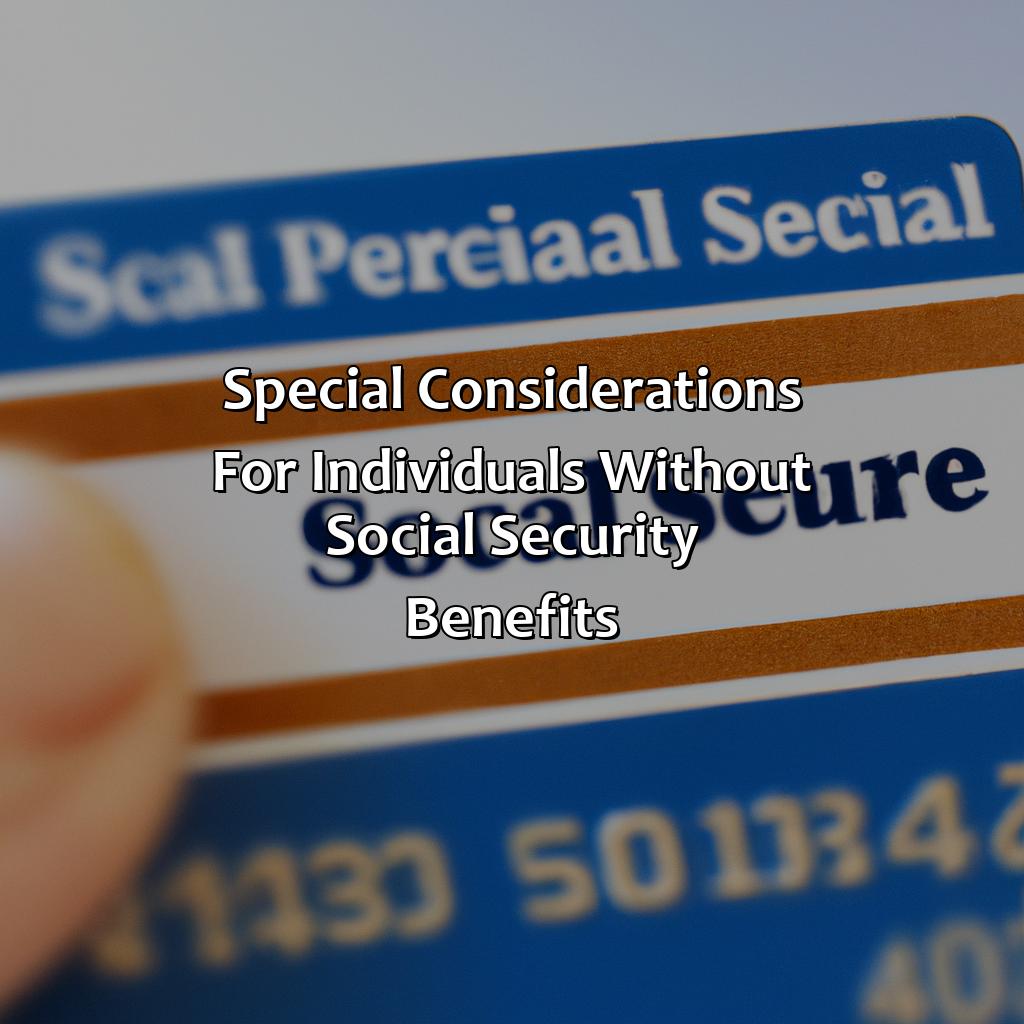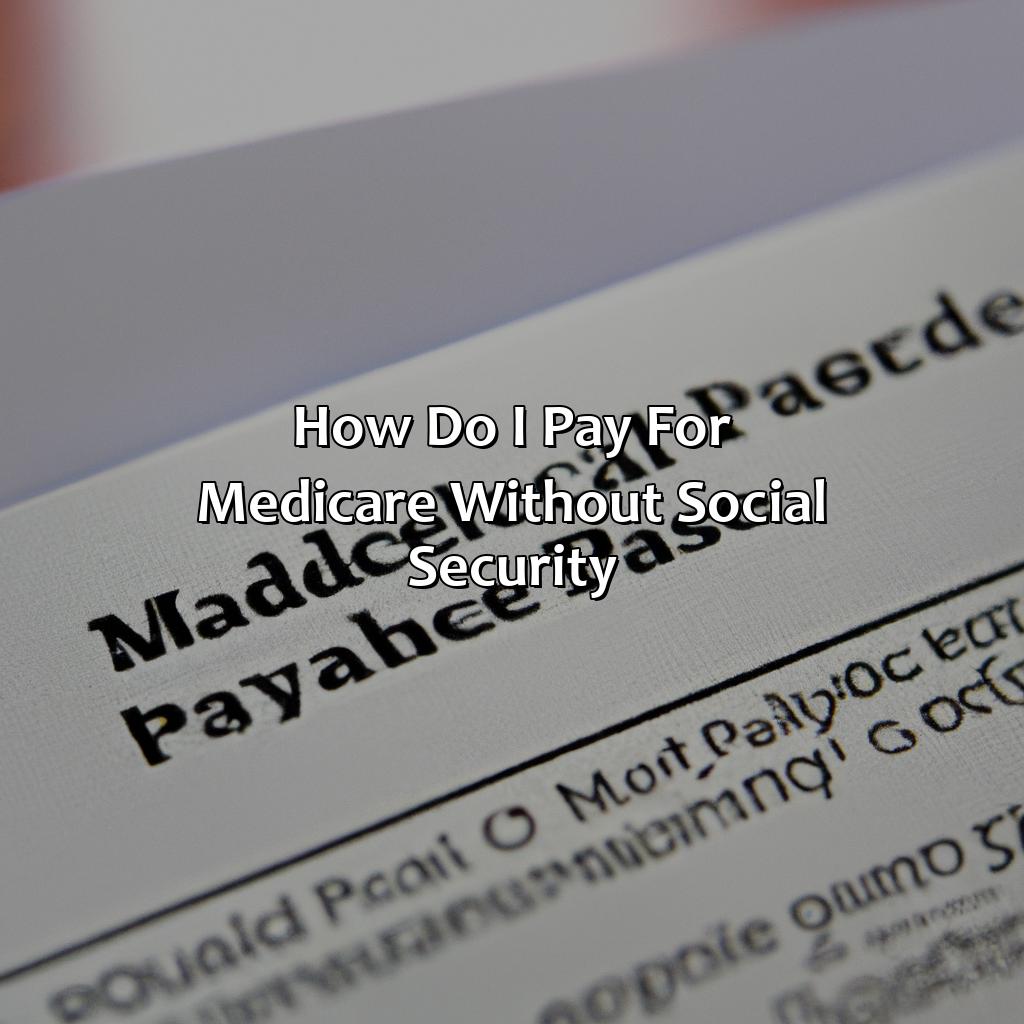How Do I Pay For Medicare Without Social Security?
Key Takeaways:
- Medicare Savings Programs can provide financial assistance to individuals who are eligible based on their income level. These programs can help cover Medicare premiums, deductibles, and coinsurance costs.
- Medicaid can also assist with Medicare expenses for individuals who meet eligibility requirements set by both programs. Medicaid may cover some costs that Medicare does not, such as dental and vision services.
- Having private health insurance can be another option for paying for Medicare costs, particularly for those who do not have Social Security benefits. However, it is important to carefully review plan options and costs before enrolling.
- Individuals without Social Security benefits should be prepared to provide alternative documentation to prove eligibility for Medicare enrollment. They should also be aware of potential late enrollment penalties and consider seeking help from the Social Security Administration if needed.
Are you worried about how you can pay for healthcare without relying on your social security benefits? This article will guide you through the options you have to pay for your Medicare costs. You will be empowered to make informed decisions about healthcare costs.
Alternative Payment Options for Medicare
Paying for Medicare without social security? We’ve got you covered!
Check out our section on alternative payment options. It’s got three subsections:
- Medicare Savings Programs
- Medicaid
- private health insurance
An option for you is just a few clicks away!

Image credits: retiregenz.com by Yuval Duncun
Paying through Medicare Savings Programs
Medicare Savings Programs offer alternative payment options to Medicare beneficiaries who do not have social security. These programs help low-income eligible individuals pay for their premiums, deductibles, copayments, and coinsurance. Eligibility is based on income and asset limitations that vary by state.
These programs come in three forms that each has its financial criteria:
- Qualified Medicare Beneficiary (QMB) covers all cost-sharing expenses such as premiums, deductibles, coinsurance, and copayments.
- Specified Low-Income Medicare Beneficiary (SLMB) helps cover only Part B premium costs.
- Qualifying Individual (QI) assists with Part B premium costs but bases the aid on a first-come-first-serve basis and funding allocations by the federal government.
It is essential to note that if beneficiaries qualify for both Medicaid and MSPs simultaneously, MSP coverage supersedes Medicaid coverage as secondary insurance in most cases. Above all, you should apply for these programs during the open enrollment period of October 15 to December 7.
Considering assistance from MSPs could break or make your Medicare plan’s benefits access stand out, it is crucial to act now before it’s too late not to miss out on potential rewards. Who needs social security when you have the magical powers of Medicaid to pay for your Medicare?
Paying through Medicaid
When Medicare beneficiaries cannot rely on Social Security to pay for their health care expenses, they may look into alternative payment options. One option is paying through Medicaid, a federal and state-funded program that assists low-income individuals with medical costs.
To enroll in Medicaid, one must meet certain financial requirements set by each state. The program can cover all or some of the out-of-pocket expenses related to Medicare services, such as deductibles, copayments, and coinsurance. Additionally, it can also cover other medical services that Medicare does not offer.
It’s important to note that Medicaid eligibility rules vary by state and can change over time. Beneficiaries should contact their state’s Medicaid office or a local SHIP (State Health Insurance Assistance Program) for more information about how to apply for and use Medicaid as an alternative payment option for Medicare.
Pro Tip: Beneficiaries can save on healthcare costs by learning more about different payment options available to them and regularly checking eligibility requirements for programs like Medicaid.
If you want to pay for Medicare through private insurance, just remember: it’s like bringing a fancy wine to a keg party.
Paying through private health insurance
Choosing Private Health Insurance for Medicare Payment
Medicare recipients have alternate options to pay for medical coverage without relying on social security. Opting for private health insurance can help ease the burden of out-of-pocket expenses. It offers additional benefits beyond what original Medicare covers, including dental and vision care.
Private health insurance providers offer different plans with varying premiums, deductibles, and co-pays. Some provide coverage for prescription drugs. Medicare recipients must choose a plan that meets their needs and budget while ensuring it is accepted by their healthcare provider.
It’s essential to understand that switching from Original Medicare to a private insurance plan is irreversible. Also, those who choose private plans don’t qualify for other coverage such as Medicaid.
Don’t miss out on the added benefits of opting for private health insurance to cover your medical expenses under Medicare. Choose a reliable provider and explore all available options before enrolling in a plan.
If you’re shelling out cash for Medicare without social security benefits, you’re not just special – you’re a financial ninja.
Special Considerations for Individuals Without Social Security Benefits
Navigating the process of paying for Medicare without Social Security? Don’t worry! The article “How Do I Pay for Medicare Without Social Security?” has got you covered. It covers three sub-sections to help you. These are:
- proving eligibility for Medicare
- avoiding late enrollment penalties
- getting help from the Social Security Administration

Image credits: retiregenz.com by Joel Jones
Proving Eligibility for Medicare Enrollment
To be eligible for Medicare enrollment, individuals must meet certain criteria such as age or having specific medical conditions. Verifying eligibility usually entails providing documentation of age, citizenship status, and work history. In the case of individuals without social security benefits, alternative documentation such as tax returns and pay stubs may be required.
It is essential to note that Medicare enrollment is time-sensitive, so it’s best to begin the application process three months before turning 65. Additionally, some people with disabilities can enroll in Medicare more quickly than those above 65 years.
Individuals who have not worked or paid into Social Security might still qualify for Medicare through their spouse’s earnings record or through a government employment program such as Indian Health Services. A health assessment by an approved provider is necessary to determine qualification in either situation.
In previous years, there were instances where prospective enrollees faced rejection due to lack of proof of prior creditable coverage (PCC). In response, the federal government created programs such as Qualified Individual (QI) and Specified Low-Income Beneficiary (SLMB), which assist qualified low-income members in paying for premiums.
Missing out on Medicare enrollment deadlines can be costly, but with a little diligence you can avoid the penalties and retire with a little more in your wallet.
Avoiding Late Enrollment Penalties
Late Enrollment Penalty Avoidance Techniques for Non-Social Security Beneficiaries
Enrolling in Medicare on time plays a crucial role in avoiding late enrollment penalties. Individuals without social security benefits may still enroll in Medicare, and they can use the same procedures for enrolling as those who receive social security benefits. However, non-social security beneficiaries should ensure their application is received three months before turning 65 to avoid late enrollment penalties.
If you miss your initial enrollment period, you may be charged a higher premium when joining Medicare later. To avoid this penalty, start with the online application process available on the Social Security Administration website or seek assistance from a licensed insurance agent experienced in Medicare coverage.
It’s important to note that individuals without social security benefits need to pay their Part B premiums directly via a bill mailed every quarter. Ensure timely payments since late payments can result in termination of coverage and fines.
Pro Tip: Always keep records of payments made or contact the Social Security Administration if there are billing disputes to avoid penalties or losing coverage.
Who needs friends when you have the Social Security Administration to help you navigate the confusing world of Medicare payments?
Obtaining Help from Social Security Administration
Receiving Assistance from Social Security Administration
To obtain financial assistance for Medicare without social security benefits, individuals can contact the Social Security Administration (SSA). The SSA provides help to those who do not receive social security income, and they can apply for Medicare Part A and B.
The eligibility requirements are different for individuals depending on their age and health status. To qualify, the individual must be a US citizen or have been a resident of the country for at least five years. They must also be eligible for disability benefits from SSA or the Railroad Retirement Board (RRB).
It is recommended that individuals apply for Medicare three months before turning 65, even if they are not planning on retiring at that time. They can also contact an insurance agent or broker to help navigate through the enrollment process.
One such individual came into our office looking for information on how to pay for Medicare since she did not receive social security benefits. She was relieved when we informed her of options available to her such as applying through her spouse’s social security record or enrolling during the General Enrollment Period.
Five Facts About Paying for Medicare Without Social Security:
- ✅ Medicare premiums can be paid directly through your bank account or credit card. (Source: Medicare.gov)
- ✅ If you delay enrolling in Medicare, your premiums may increase by 10% for every 12-month period that you were eligible but did not enroll. (Source: AARP)
- ✅ If you are enrolled in Medicare but do not receive Social Security benefits, you will receive a quarterly premium bill from Medicare. (Source: Medicare.gov)
- ✅ Some states offer Medicare Savings Programs that can help pay for Medicare premiums and other costs. (Source: Benefits.gov)
- ✅ You can also consider purchasing a private Medicare supplement insurance policy to help cover Medicare costs. (Source: Medicare.gov)
FAQs about How Do I Pay For Medicare Without Social Security?
How do I pay for Medicare without social security?
Medicare is funded through various sources, including payroll taxes, premiums, and general revenue. If you are not receiving social security benefits, you can still pay for Medicare through other means.
Can I use a credit card to pay for Medicare if I am not receiving social security?
Yes, you can use a credit card to pay for Medicare premiums if you are not receiving social security benefits. You can do this by visiting the Medicare website or by contacting them directly.
How do I set up automatic payments for Medicare without social security?
To set up automatic payments for Medicare without social security benefits, you will need to contact Medicare directly. They will provide you with the necessary information and forms to fill out.
Do I need to pay for Medicare if I am not receiving social security benefits?
Yes, you will still need to pay for Medicare even if you are not receiving social security benefits. Medicare is a separate program from social security and requires separate funding.
Can I pay for Medicare monthly instead of annually if I am not receiving social security?
Yes, you can pay for Medicare premiums on a monthly basis if you are not receiving social security benefits. You can set up automatic monthly payments through Medicare or pay each month manually.
What happens if I don’t pay for Medicare without social security?
If you don’t pay for Medicare without social security benefits, you may lose your coverage. It’s important to keep your Medicare premiums up to date to avoid any lapses in coverage.
